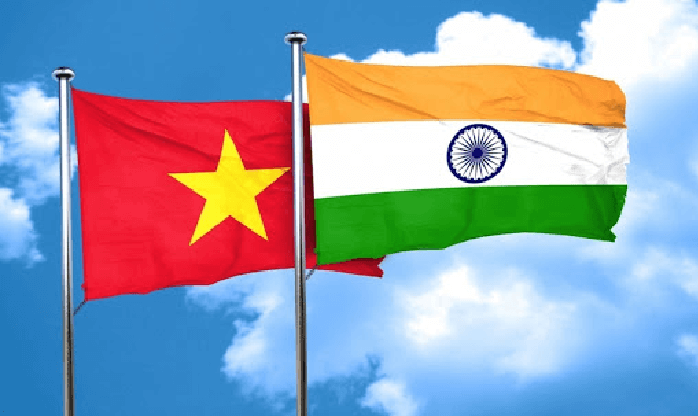China has lambasted India over its negotiations with Vietnam on the South China Sea during a joint summit, where both nations called for the effective implementation of the Declaration of the Conduct of Parties in the South China Sea or DOC.
Who Is Zhao Zongqi & Why Is India Celebrating The Exit Of Chinese PLA Commander?
The DOC was signed between China and ASEAN countries in 2002 for enhancing stability and cooperation in the region. A report in Chinese state-owned media Global Times noted that “this is not the first time (nor will it be the last) that India has poked its nose in the South China Sea”.
During the joint virtual summit on Monday with Vietnam Prime Minister H.E. Nguyen Xuan Phuc, Indian Prime Minister Narendra Modi stressed peace, stability, and prosperity in the Indo-Pacific region. Apart from signing agreements, the two sides have intensified military cooperation.

Unlike Vietnam, which has been locked in conflict with China over the South China Sea for nearly 50 years, India doesn’t have any issue in the region.
However, New Delhi still has stakes in the South China Sea, which is an important commercial passage, and its trade with South Korea, Japan, China, and Russia all passes through it, the report underlines while terming India’s concerns on freedom of navigation as ‘groundless’.
Liu Zongyi, secretary-general of the Research Center for China-South Asia Cooperation at Shanghai Institutes for International Studies, says that India is aligning with Washington in its offensive on the South China Sea. Liu underlines that due to the current border stand-off between India and China as well as their territorial conflicts in the past, “New Delhi has been seeking bargaining chip to counter China”.
The report states that India wants to counter China in the region due to its maritime advantages in the Indian Ocean. Strategic experts believe India wants to become a maritime power in the region.
The Modi government had realized the importance of the South China Sea both in terms of its geo-economic and strategic interests and had pledged to be a credible security provider during the 2014 East Asia Summit. India’s position was reiterated by External Affairs Minister S Jaishankar during the summit last month.
Foreign policy analyst C Raja Mohan in his book Samudra Manthan has attributed several reasons for India’s interest in the South China Sea. These include India’s increased trade with east Asia, China’s assertiveness in the Indian Ocean, the importance of forward maritime presence, securing the trade-transit route, and the recognition of the Sea Lanes of Communication.
With regard to India’s alignment with the US, New Delhi’s ambitions on the South China Sea have been clear under both Obama and Trump administrations. During Obama’s 2015 visit to India, the two sides had stressed “the importance of safeguarding maritime security and ensuring freedom of navigation and overflight throughout the region, especially in the South China Sea.”
Even during outgoing US President Donald Trump’s visit to India earlier this year, a senior US administration official had said, “India is a pillar of our Indo-Pacific strategy, and we continue to work together to promote this vision of a free and open international system”.
Follow EurAsian Times on Google